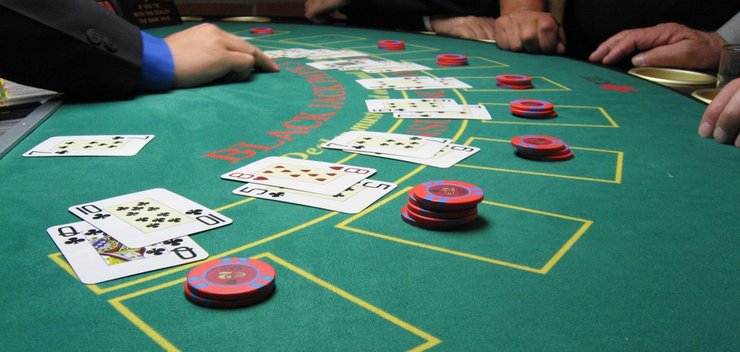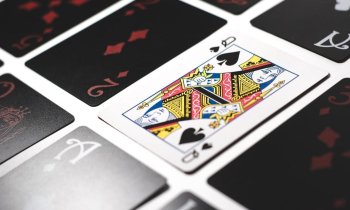Casino game providers have figured out how players can make money while having fun with their games. Therefore, you have done their equations while ensuring that the casinos also get their share from gaming. Understanding the game mathematics helps you pick the right title, determine the right bankroll and use the bonuses correctly to increase your chances of winning. This article explores some of the fundamental mathematics behind casino games and how they work.

Understanding the House Edge
The house edge is the statistical advantage held by the casino over players, which ensures its profitability in the long run. It serves as a built-in mechanism that allows casinos to sustain their operations without making additional charges to their customers.
The house edge is calculated by determining the difference between the true odds of a specific bet and the payout offered by the casino. This disparity creates a margin that favors the house. For example, in a fair coin toss, the true odds of landing on heads or tails are 50/50. However, a casino may offer a payout of 1.9:1 for a winning bet on heads, resulting in a house edge of 5%. This means that, on average, for every $100 wagered, the casino expects to retain $5 as profit.
Note that the house edge does not mean you will lose money. In the short term, players can experience both wins and losses. However, over a large number of bets, the house edge ensures that the casino will generate profits from your gaming even if you win.
Return to Player (RTP)
Return to Player (RTP) is an essential metric that measures the percentage of wagered money a game will pay back to players over time. It provides players with insights into the expected returns they can anticipate from a particular casino game. The RTP is often expressed as a percentage and represents the inverse of the house edge. For instance, many slots at All Slots Casino New Zealand have a 96% RTP. Therefore, their house edge is 4%.
To calculate the RTP, the total amount wagered on a game is considered and the expected return is determined based on the game's rules, probabilities and payouts. The higher the RTP, the more favourable the game is for players, as it indicates a lower inherent advantage for the casino.
Game-Specific Mathematics
Casino games, such as blackjack, poker, roulette and slots, each have their own mathematical principles that govern their outcomes. You should consider these principles, including probabilities, strategies and expected returns and their impact on your overall performance and decision-making.
Blackjack: In blackjack, your goal is to achieve a hand total closer to 21 than the dealer's hand without exceeding it. Understanding these probabilities of receiving certain cards allows you to make informed decisions, such as when to hit, stand, double down or split pairs. Strategies like the basic strategy can minimize the house edge and increase your chances of winning.
Poker: Poker is a game of skill that involves strategic decision-making and understanding the probabilities of different hands. Probability calculations help players determine the likelihood of hitting specific hands or drawing certain cards. Consider such strategies as bluffing, bet sizing and reading opponents to enhance your success.
Roulette: In roulette, players bet on the outcome of a spinning wheel divided into numbered pockets. The probabilities of hitting specific numbers or groups of numbers vary depending on the type of roulette game (American or European) and the specific bets placed. You should understand the odds and potential payouts for different bets in order to make more informed choices.
Slots: Slot machines are based on random number generation and rely on probability calculations. Each spin is independent, and the chances of winning are determined by the number of symbols and their distribution on the reels. You should understand the paylines, paytables and bonus features to assess the potential returns and volatility associated with different slot games.
Variance and Volatility
Variance and volatility describe the frequency and size of wins and losses. They play a crucial role in understanding the risk and potential rewards associated with different games.
Variance
Variance measures the statistical dispersion of outcomes. High-variance games have infrequent but significant wins and losses, while low-variance games offer more consistent but smaller wins and losses. If you have a preference for excitement and the possibility of big wins, you may consider high-variance games like progressive slots or certain types of poker. On the other hand, if you are seeking steadier bankroll management, consider low-variance games like certain table games or video poker.
Volatility
Volatility refers to the degree of risk or unpredictability in a game. Highly volatile games have a higher risk of significant swings in bankroll, with both large wins and losses occurring more infrequently. Low-volatility games, on the other hand, have a lower risk of extreme swings and provide a more stable and predictable gaming experience. Volatility can influence the strategies players employ and the size of their bets to manage their bankrolls effectively.
You should understand variance and volatility to align your gameplay preferences and risk tolerance with the appropriate games. It enables you to make informed decisions regarding bankroll management, bet sizing and game selection, ensuring an enjoyable and sustainable casino experience.
Probability and Odds
In gaming, casinos calculate the chances of various outcomes in a game, such as landing a certain number on a roulette wheel or drawing a particular card from a deck. They then express the probability as a fraction or a percentage. For example, a poker title with a probability of winning a bet of 1 in 5 is written as 1/5 or 20%.
On the other hand, odds are the ratio between the chance of winning and that of losing. Casinos express them in different formats, such as decimals, fractions and ratios. They then use them to determine the payout amounts in casino games. For example, if the odds of winning a bet are 1 in 3, it can be written as 1/3 or 0.33 (decimal) or 1:2 (ratio). Payouts are usually based on these odds, with the amount won relative to the original wager.
Take time to understand these mechanisms while playing at the casino. It helps you make informed decisions, increase your chances of a win and take advantage of casino offers. Most of the information is available with the specific title you pick.
About the Author
Robert Longthorpe is currently a Senior Writer at NZCasinoClub.com. He is a graduate of the University College in London and has worked as a finance journalist. Robert has worked in the gaming industry since 2011. He currently guides the company’s content strategy as well as mentoring young writers.














Comments